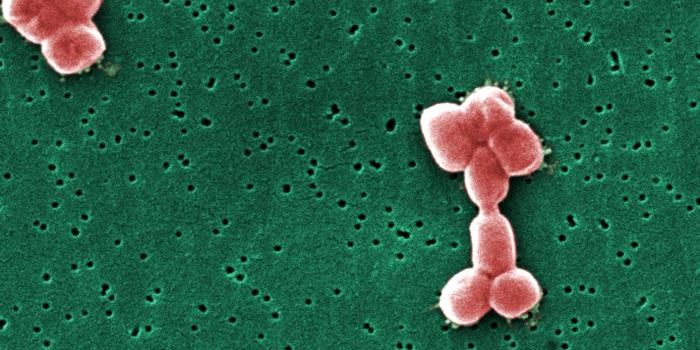Antibiotics for Superbug Infections?
Antibiotics for superbug infections? A study published in the Proceedings of the National Academy of Sciences claims that a combination of compounds can target one of the most serious and drug resistance pathogen-- Pseudomonas aeruginosa—known to cause pulmonary infections in humans. The compounds are acidified nitrite and ethylenediaminetetraacetic acid that are known as AB569.
"AB569 kills these pathogenic bacteria by targeting their DNA, RNA and protein biosynthesis as well as energy and iron metabolism at concentrations that do not harm human cells," explains Daniel Hassett, a professor in the UC Department of Molecular Genetics, Biochemistry and Microbiology. "These were tested in laboratory mice with humanized cells. Our data implicate that AB569 is a safe and effective means that could be applied to eradicate these superbugs."
Combating superbug infections resistant to antibiotics is critical as difficult pathogens sicken more than 2.8 million people and lead to more than 35,000 deaths in the United States annually.
What causes antibiotic resistance?
"These superbugs have an ingenious mechanism of being able to resist traditional antibiotic therapies by a vast number of acquired strategies," explains Daniel Hassett, a professor in the UC Department of Molecular Genetics, Biochemistry and Microbiology. "Antibiotics affect specific processes in the bacteria, but not all of them. AB569 affects multiple processes at once leaving the exposed bacteria simply overwhelmed."
Researchers applied Pseudomonas aeruginosa to the lungs of laboratory mice for five days to mimic chronic obstructive pulmonary disease in humans. The patented AB569 in March 2018 in the United States as a potential treatment for many antibiotic-resistant organisms that cause pulmonary infections in patients with cystic fibrosis and chronic obstructive pulmonary disease.
"Multidrug resistance, a trait of superbug bacteria, is one of the greatest threats to global public health," says Hassett. "It is usually caused by excessive drug usage or prescription, inappropriate and often compliance-related use of antimicrobials, overuse in the chicken, beef and pork industries and/or substandard pharmaceuticals."
According to the Centers for Disease Control and Prevention, antibiotic resistance is considered to be among the most serious threats to human health because the pathogens rapidly evolve new means to evade drug therapy leaving those who are susceptible at risk.
"Superbugs typically are found in areas of the world where there is a high population density, thereby facilitating rapid spread of such organisms. People who have traveled to areas of the world with high rates of antibiotic resistant bacteria such as South Asia and the Middle East are more likely to carry superbugs," said Hassett. "This is why patients are often quarantined if they test positive for such organisms while epidemiologists are on their toes tracking a pathogen's spread."
Source: Science Daily










